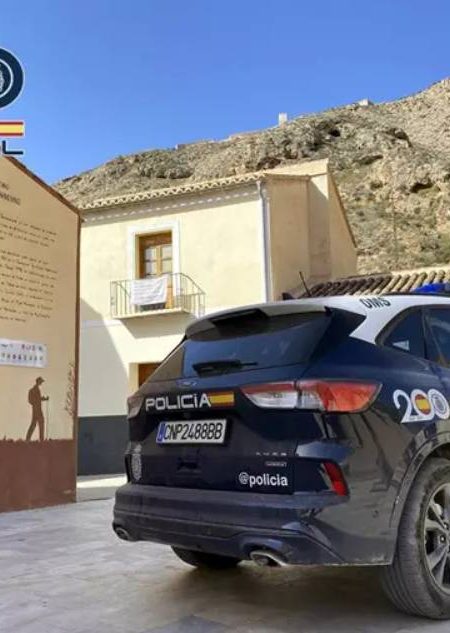All EU member states must recognise any marriage that took place in another EU country, even if their own laws don’t allow for marriage equality. This includes marriages between same-sex couples. Yesterday, Tuesday November 25th, the European Court of Justice (ECJ) ruled that same-sex unions should be recognised in all EU countries. “Not recognising a marriage validly entered into by two EU citizens of the same sex in another Member State is against EU law. The ECJ said, “It not only violates the freedom of movement and residence, but it also violates the right to respect for private and family life.”
The court says that Member States are in charge of making regulations about marriage, but it also says that they “must respect Union law when exercising that jurisdiction.” The CJEU says that the requirement to recognise marriage between two people of the same sex “does not infringe upon the national identity or threaten the public policy of the Member State of origin of the spouses.” This is because it does not mean that that State has to recognise marriage between two people of the same sex in its national law.
A Polish male couple living in Germany who was married in Berlin in 2018 filed a complaint that led to this verdict. One of the spouses was also a citizen of Germany. They got married because they wanted to move to Poland and live there as a married pair. But when they asked the Polish Civil Registry for a copy of their marriage certificate (the legal way to recognise the marriage), they were told refused since Polish law does not allow same-sex marriage. The Registry thought that the request went against basic rules of Polish law.
The couple took their case to the Polish Supreme Court, which sent it to the CJEU. The court said in its decision, “Not recognising a marriage legally contracted in another Member State can cause serious administrative, professional, and private problems, forcing spouses to live as single people in their Member State of origin.” It also said that when a couple starts a family in an EU member, “they must be sure that they can continue it when they return to their Member State of origin.”
The CJEU also thinks that Member States have some freedom in how they choose to recognise same-sex marriages. The court said, “However, when a Member State chooses to establish a single means for the recognition of [heterosexual] marriages contracted in another Member State, such as the transcription of the marriage certificate in the Civil Registry, it must apply that means also to marriages between persons of the same sex.” The CJEU stressed that “transcription is the only means provided for a marriage contracted in another Member State to be effectively recognised by the administrative authorities.” Poland must use it for marriages between people of the same sex.
The European Court of Justice can tell an EU country to find out if it has broken EU law and then fix the problem. If a country doesn’t follow a rule, the CJEU can fine it.
ILGA-Europe said, “This ruling is a big step towards protecting same-sex couples across the EU, especially in Bulgaria, Romania, Slovakia, and Poland, where same-sex couples still don’t have legal recognition or protection, which is against their obligations under the European Convention on Human Rights. It also applies to all EU countries where same-sex couples can’t get married.” The worldwide group that fights for LGBTI+ rights was happy with the result.
The state of affairs in the rest of the EU
Óscar Rodríguez, who speaks for external relations at the State Federation of LGTBI+ (Felgtbi+), says, “The CJEU’s decision reaffirms the essence of the European project where fundamental rights are non-negotiable.” “Recognising marriages legally contracted by two citizens of the Union, without discrimination based on sexual orientation, is to comply with the principle of equality that has underpinned the European project since its origins.”
“I can’t help but think about what the recognition of same-sex marriage meant for Spain twenty years ago. A modest modification to the Civil Code affected the lives of thousands of families and, even more importantly, how society saw them. Rodríguez says, “Today, in our country, the idea that all families deserve the same recognition and protection is a deeply ingrained value.”
This year, Spain marked the 20th anniversary of making same-sex marriage legal. The law, which was passed by the government of José Luis Rodríguez Zapatero (PSOE), put the country at the forefront of LGBTQ+ rights. It was the third country in the world to do so. According to official numbers, more than 75,000 same-sex couples have gotten married since it became legal. The People’s Party (PP) filed an appeal with the Constitutional Court in September 2005, just a few months after the law was passed. They said that the law “distorted” marriage. The appeal was turned down on November 6, 2012, seven years later. The National Institute of Statistics (INE) says that there are 14.1 same-sex weddings for every 100,000 people living in Spain right now. The Canary Islands, the Balearic Islands, and Madrid all have the highest rates, at 21.7. Castile and León (7.5), Galicia (7.9), and Extremadura (8.1) have the lowest rates. With a score of 13.4, Catalonia sits in the middle.
Right now, 17 of the 27 member states allow same-sex marriage. Some places have different legal frameworks (like civil partnerships), while others don’t have any laws that protect them or make it hard for them to be recognised, like Viktor Orbán’s Hungary. Poland’s far-right Law and Justice (PiS) government recently said that some districts were “free of LGBT ideology.” Donald Tusk, the centre-right, pro-European liberal who is the head of the current Polish government, has tried to get same-sex partnerships recognised, but the project has been delayed since some members of his coalition don’t want it to happen.









No Comment! Be the first one.